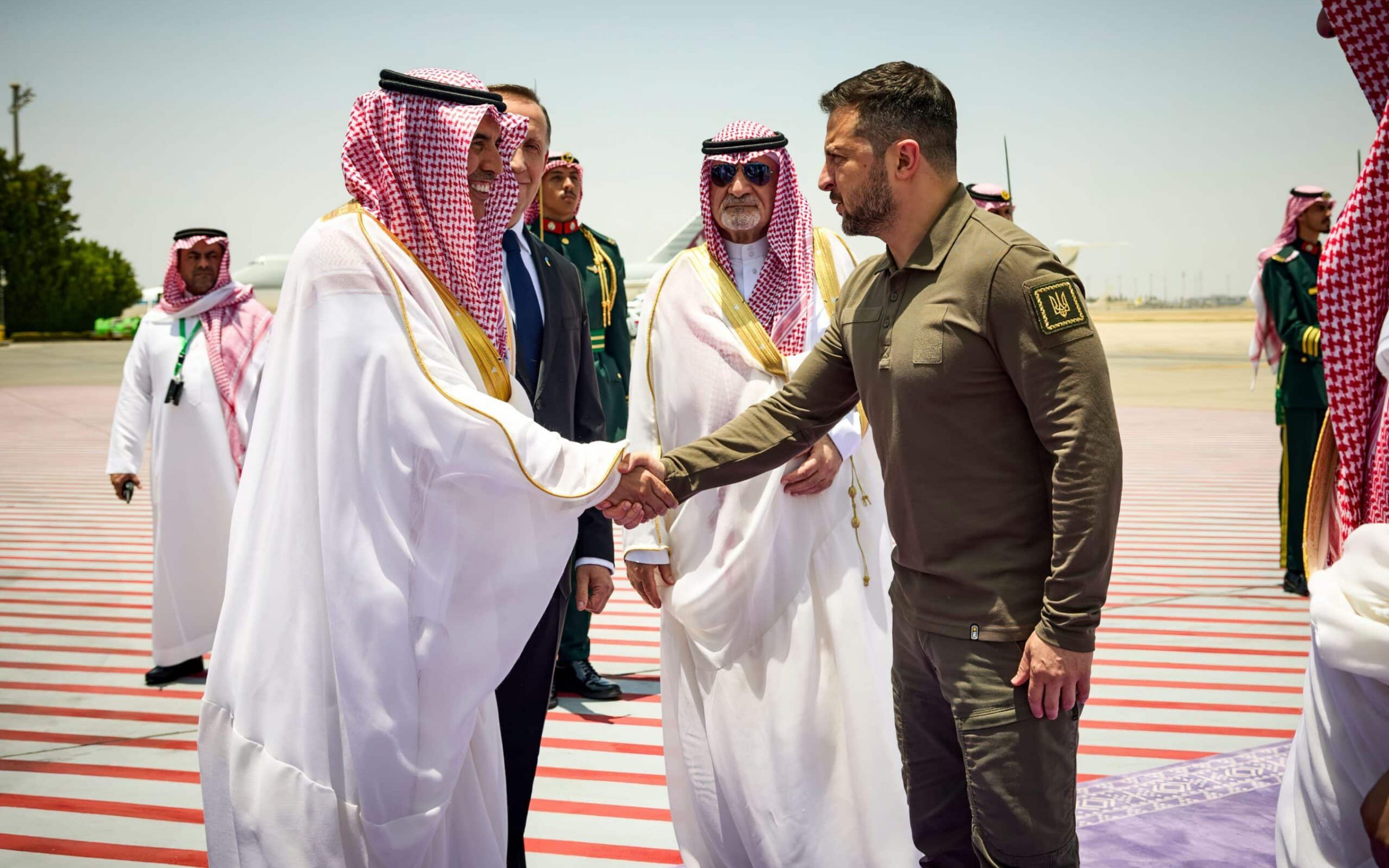The weekend “peace talks” hosted by Saudi Arabia in Jeddah were “productive” according to Ukraine, despite Russia calling them futile.
The weekend’s summit which saw representatives from over 40 countries come together to show their support for peace and international law has been met with mixed responses.
Many have criticised the idea that this summit was a peace negotiation at all as Russia – the aggressor – was not invited. Additionally, the Russian deputy foreign minister Sergei Ryabkov told state media that the Jeddah talks were “a reflection of the West’s attempt to continue futile, doomed efforts” to get the Global South on Ukraine’s side.
In contrast, Zelensky’s head of staff Andriy Yermak said: “We had very productive consultations on the key principles on which a just and lasting peace should be built.”
These lasting principles, Ukraine’s 10-point plan for peace, involves the withdrawal of all Russian troops and the return of all Ukrainian territory. But this plan is not just about justice for Ukraine, it includes nuclear safety, food security and energy security – issues of crucial importance for all countries, not just European countries.
Ukraine’s Volodymyr Zelensky hopes that the Jeddah talks will lead to a more extensive peace summit later in the year.
What was also encouraging about the Jeddah talks was that China was involved. It sent a special envoy for Eurasian affairs, Li Hui, to the summit and has said that it backs further peace talks. Li said: “We have many disagreements and we have heard different positions, but it is important that our principles are shared”.
These constructive talks certainly clear the ground for a summit later in the year as Zelensky hopes. The support of the Global South cannot be underestimated. In the end, it may be pressure from those states that forces Putin to engage in some sort of diplomacy.
Write to us with your comments to be considered for publication at letters@reaction.life




